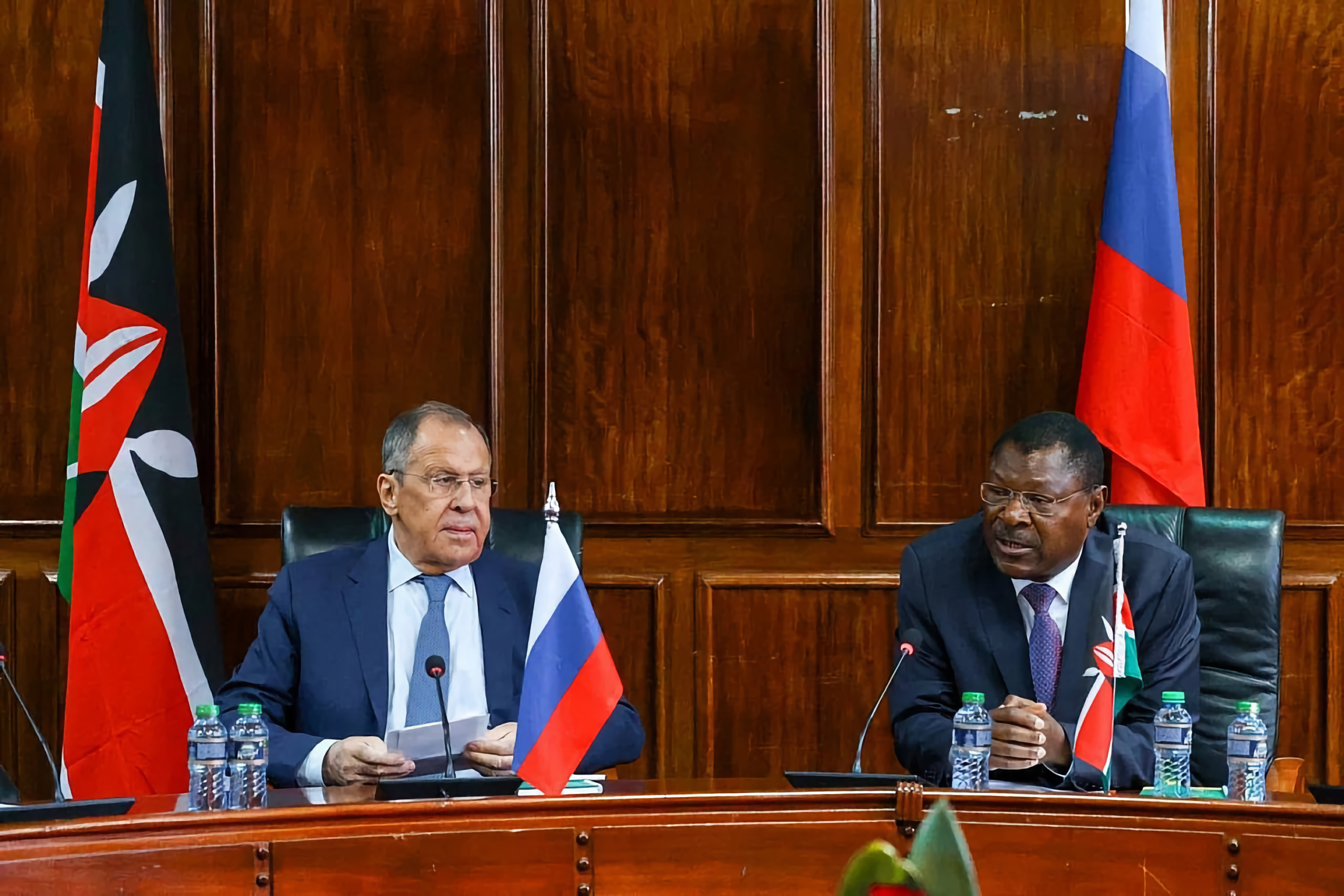


“Africa quite reasonably presents its intentions to become a real full-fledged center of the emerging multipolar world order,” stated Russian Foreign Minister Sergey Lavrov during his visit to Kenya in late May. Lavrov’s words reflect Russia’s warmth towards Africa in an increasingly open global economy that encourages win-win cooperation. Lavrov, currently on his third tour of Africa this year, began his trip by meeting Kenyan President William Ruto to commemorate sixty years of diplomatic ties and explore avenues for deeper collaboration in the economic, technological, and agricultural sectors. As a gesture of support, Kenya’s agricultural industry will receive 30,000 tons of Russian-produced fertilizer, provided free of charge.
The relationship between Russia and African nations has blossomed since the inaugural Russia-Africa Summit held on October 24, 2019, in Sochi, Russia. During the summit, hosted by Russian President Vladimir Putin and Egyptian President Abdel Fattah El Sisi, Russia took decisive steps to position itself as a major trading partner for African countries. President Putin underscored his country’s commitment by announcing the cancellation of some $20 billion in debt owed by several African nations. The act of forgiveness sought to signal to African countries that Russia could be relied on as a trade partner, offering an alternative to the exploitative West. For years, African nations had received purported “foreign aid” from the United States, only to end up mired in political instability with their natural resources exploited for the benefit Western oligarchs. Canada, a significant player in Africa, holds ownership of mines in multiple African countries, accounting for 60% of global mine ownership.
A section of the 2019 Sochi summit declaration outlines explicitly the objectives of this partnership, namely to “promote deeper BRICS-Africa partnership and cooperation between the BRICS countries and African States aimed at strengthening the collective mechanisms of global governance within a multipolar system of international relations, as well as facilitating their sustainable socio-economic development in the context of the fourth industrial revolution.” The mention of the “fourth industrial revolution” in this context holds great significance for the idea of multipolarity. While many western nations face deindustrialization under finance capitalism, large swaths of Africa are poised to develop and industrialize with the assistance of BRICS nations. In light of possible further debt relief, increased grain exports, and enhanced industries, it is clear why most African leaders chose to attend the 2019 Summit. Sergey Lavrov’s current tour of Africa is building up to the second Russia-Africa Summit, which is scheduled to take place in St. Petersburg in July of this year.

While Russia no longer identifies as “Communist,” it continues the USSR’s legacy of supporting African states in their anti-imperialist endeavors. During the Soviet era, the USSR provided economic and military aid to countries engaged in nationalist struggles against colonialism. Gu Guan-Fu’s 1983 article “Soviet Aid to the Third World: An Analysis of Its Strategy” documents the numerous instances of Soviet infrastructure assistance to African nations.
In Ethiopia, projects included the construction of a hydroelectric station at Melka-Wakena, expansion of the oil refinery in Assab, establishment of central repair facilities for tractors and agricultural machinery, construction of a large cement plant, and exploration for oil, natural gas, and minerals. Notably, the Melka-Wakena hydroelectric station remains operational today and provides electricity to power more than 100,000 households. Additionally, assistance was provided for the establishment of state farms in Angola, Benin, Guinea, Mali, and Tanzania.
The USSR played a significant role in supporting anti-imperialist leaders in Africa. One notable recipient of Soviet aid was Egypt’s Gamal Abdel Nasser, who received more than $80 million in military assistance in 1955, which was used during the Arab-Israeli War. The 1960s marked a crucial decade for African nations as they declared their independence, and the USSR provided assistance to many of them from the outset.
After decolonization, Africa became a battleground for proxy conflicts during the Cold War, with both the United States and the USSR supporting opposing sides. During the Congo Crisis, when Patrice Lumumba was arrested, the USSR was the only nation to provide aid and demand that the UN intervene to secure his release. In 1975, the USSR made history when it sent active combat units to a different continent for the first time, to directly support the People’s Movement for the Liberation of Angola (MPLA) in their quest to secure political power in Angola. Besides troops, the USSR provided more than $300 million in military aid to the MPLA to fight CIA-backed Unita rebels led by the murderous cannibal, Jonas Savimbi.
The USSR’s assistance played a pivotal role in the establishment of numerous modern political groups and infrastructure projects in Africa. Without their support, many of these initiatives would not have come to fruition. As we examine the past, it becomes evident that Russia-Africa relations have maintained a consistent trajectory since the 1960s. Rather than witnessing a significant shift, it appears that longstanding allies are strengthening their ties and expanding their global economic capacities. This indicates a promising future for Russia-Africa relations, built upon a foundation of enduring friendship and cooperation.
The 2019 Russia-Africa Summit Declaration sought in part to “Reaffirm the fundamental importance for the Russian Federation and the African States of the universally recognized principle of equal rights and self-determination of peoples, which has become the legal basis for the decolonization process.” The statement bears a striking resemblance to a 1983 excerpt from the Russian newspaper Izvestia, which stated: “The Soviet approach to relations with African countries is based on other principles of genuine equality, complete respect for national sovereignty, non-interference in internal affairs, and mutual benefit.” The two quotes underscore the consistency in principles between the 2019 Russia-Africa Summit Declaration and the earlier position expressed in Izvestia. And they serve as testaments to Russia’s genuine and enduring commitment to principles such as equality, respect for sovereignty, non-interference, and mutual benefit in its relations with African countries.